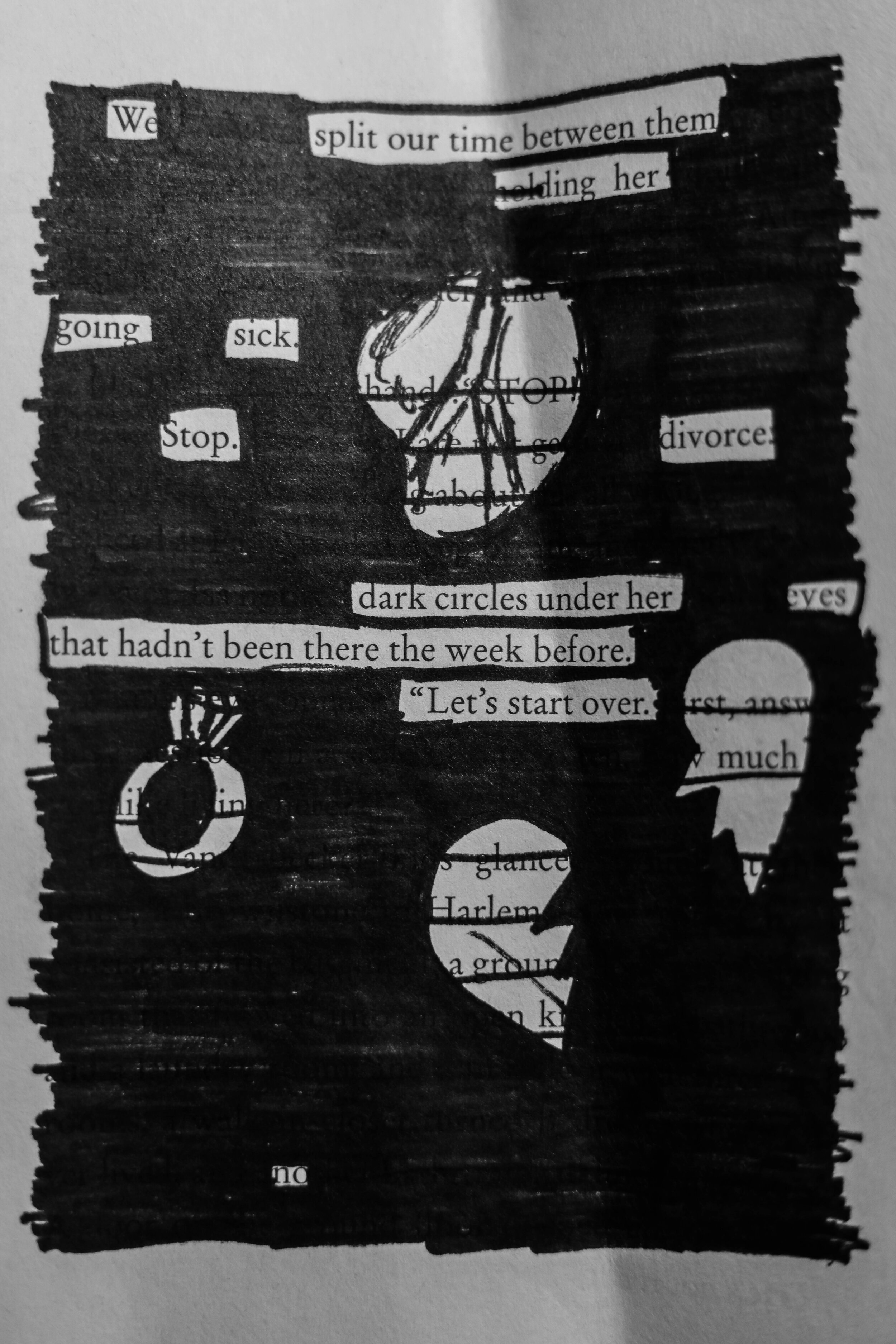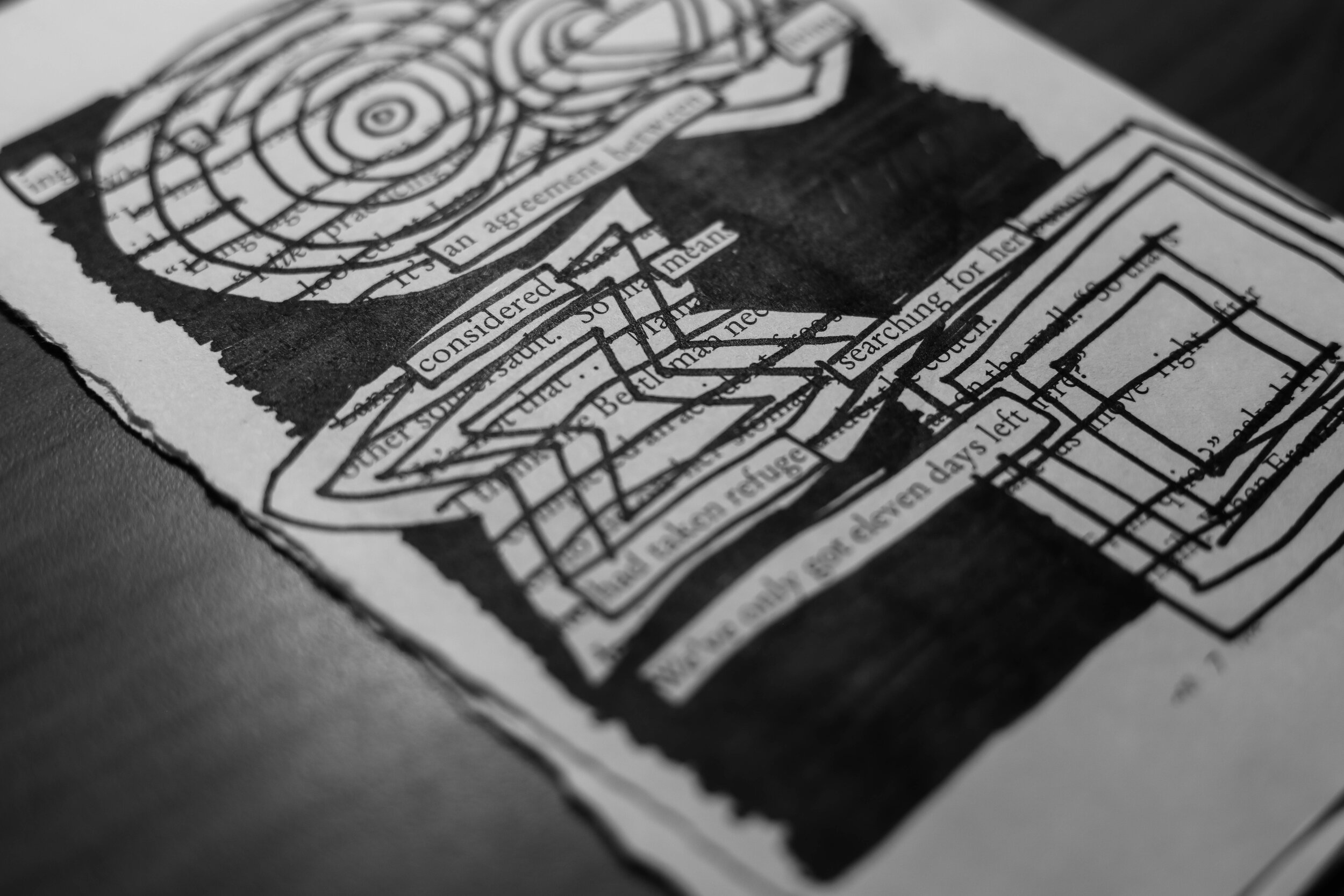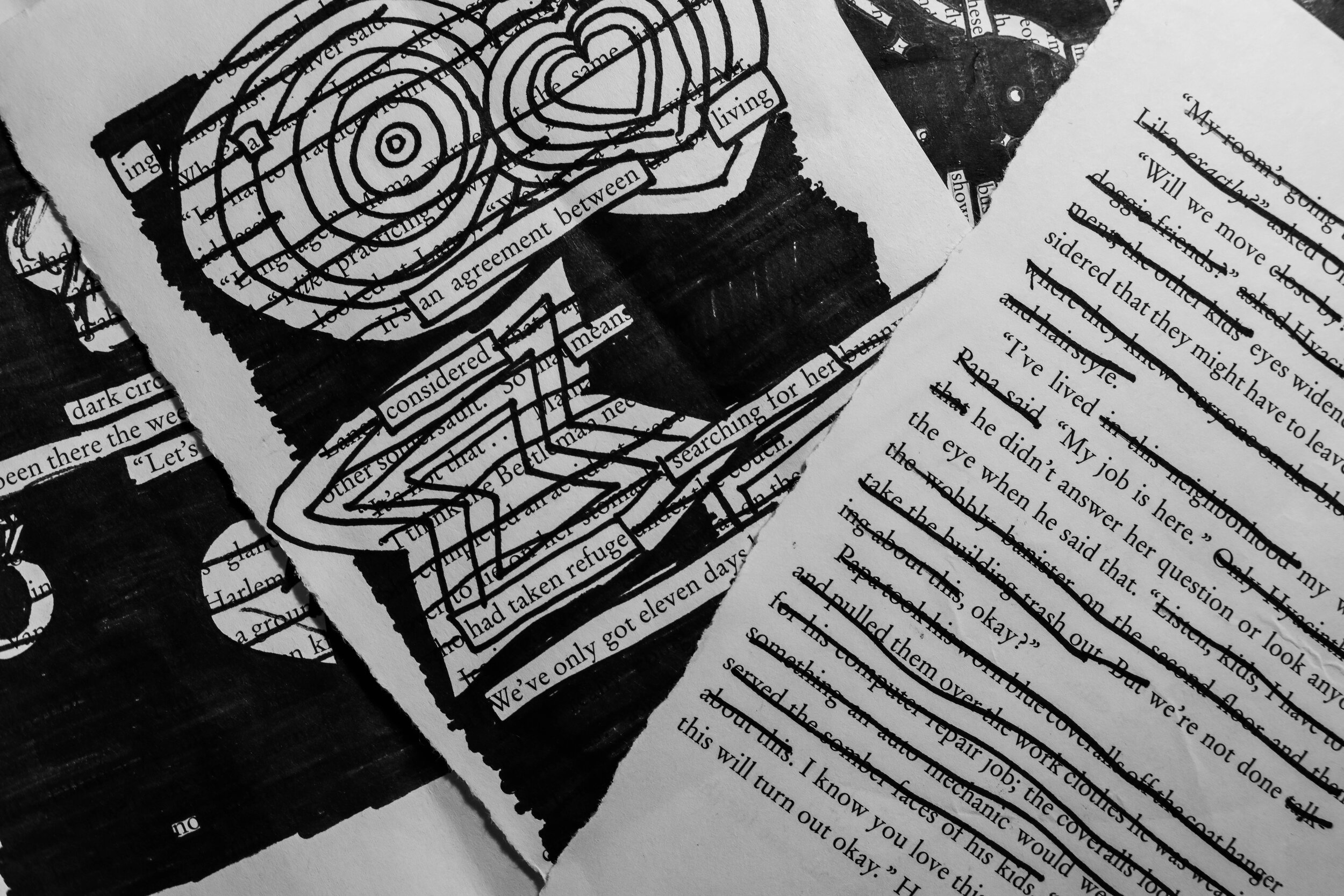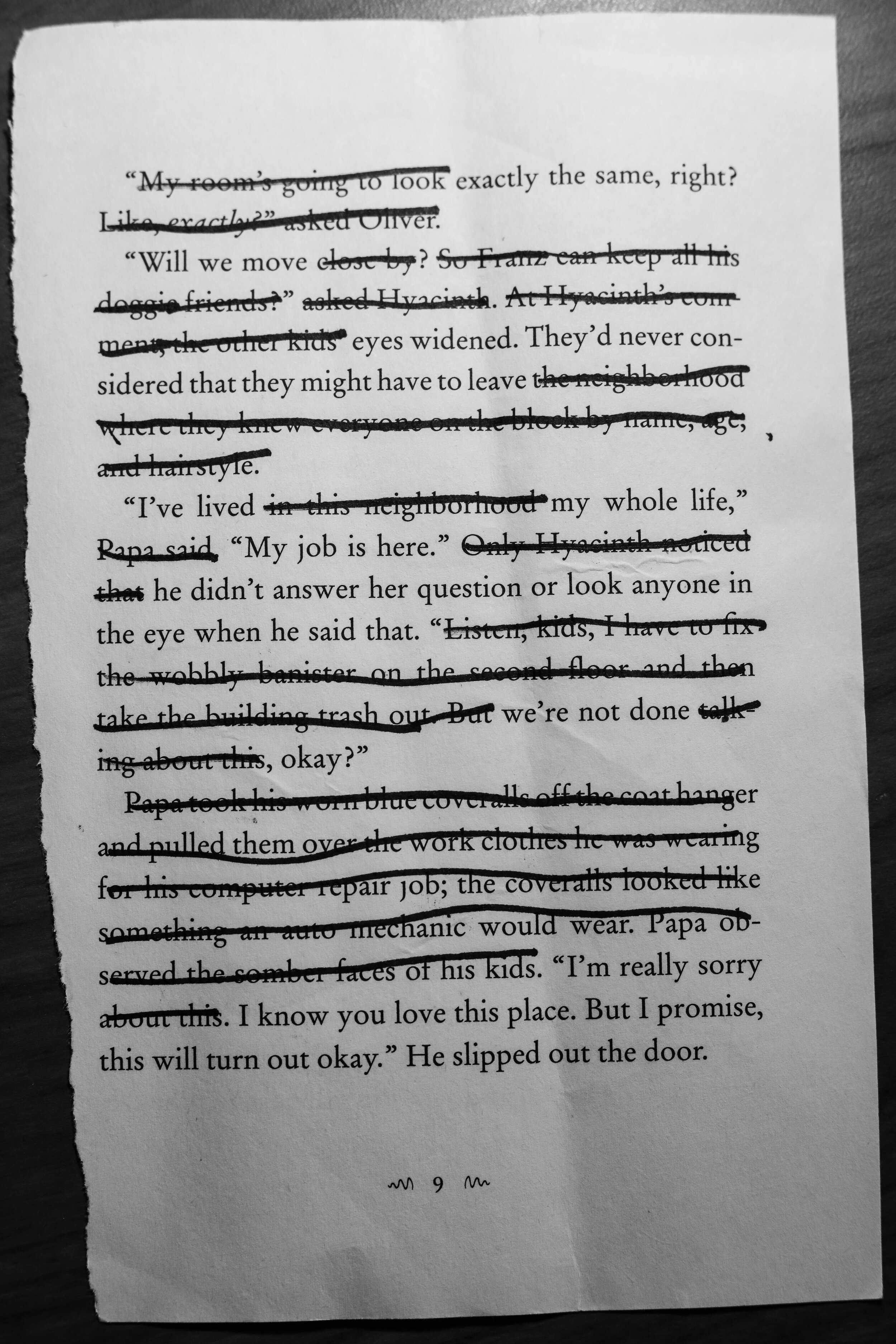Notes on Blackout Poetry

When writing blackout poetry, the plot of the text you are working with quickly fades, and you find yourself staring at a discordant group of words that nevertheless come from a particular register, a particular topic, as it were.
When reading blackout poetry, one is faced with the uncertainty of how to properly interpret a text. Do you keep in mind that the author had a limited set of words to choose from? Do you assume each word and phrase to be deeply deliberate, perfect even? Or do you forget about all that and simply focus on what the words mean for you regardless of what the author wanted you to feel? Do you read the text as a pretty thing someone has happened upon by chance, meant to be reveled in? And, of course, you must do it all and not at all, all at the same time.
Is blackout poetry like Dada without nihilism? Does it affirm the total relativity of art by showing that poetry can emerge from any text? Or does it do something totally different? Like valorizing that very ability of people to find art anywhere and the difficulty in making good art?
To me, blackout poetry is wonderful for its honesty in presentation. It doesn’t feign absolute genuineness or full freedom in idea generation, word choice, and style, or even that the author of the text is the name you read in the description! And as such, blackout poetry rightfully belongs in current art as an expression of the fact that beauty supervenes(!) regardless of the limitations fundamental to art.







